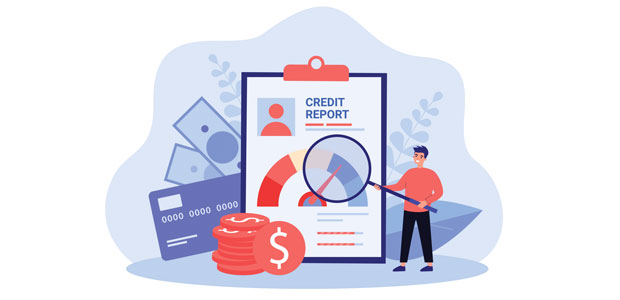
When should you start building your credit score?
Having a good credit rating can influence multiple parts of your adult life, affecting your ability to get a credit card, take out a mortgage or even, in some cases, getting a mobile phone contract. In order to get a good credit rating, it is essential to start building credit as early as possible.
When to start building your credit history
Something that is not taught enough is the importance of a credit rating. With many people leaving school completely oblivious to the complexities of adult life, it often takes a long time before people realise they should be starting to build credit.
In fact, around 40% of students claim they were never educated about credit history and its importance. It often sneaks up on people as in some cases, people will need to already have an established credit history upon graduating. This could impact taking out a credit card, a personal loan or, in some cases, even getting a good job.
Experts recommend to start building your credit when you are 18 years old, if not before, due to the huge impact it will have in the early years of adulthood. They suggest that young people should learn what a bad credit score is, how it could impact your future finances, and how to start building good credit. The earlier a person is able to start these best practices, the better their future financial landscape.
Why should you start building your credit score early?
Learning about credit early can help people avoid making financial decisions that could have detrimental consequences. If you start building your credit history early, it means that your credit history is automatically longer - one of the factors that positively impacts your overall credit score. It also leaves more room for error as if you make mistakes when you are young, you have the chance to learn from them in the future and any mistakes on your credit report are unlikely to be visible by the time you make important financial decisions such as applying for loans or mortgages.
Your credit history acts as proof of your creditworthiness. Lenders and financial institutions will look at this when determining how much money they can lend you, working out a realistic repayment plan and deciding what fees to charge you, amongst other things.
In order to get an unsecured credit card, you will need to already have decent credit.
If you have good or excellent credit, you could qualify for lower interest rates on loans including mortgages and student loans. In some cases, employers may also ask to review your credit history to determine whether or not to give you a job.
What are the advantages of building credit?
Having a good credit rating can benefit you in many ways throughout your life. Here are some of the main advantages of building credit:
More likely to be approved for a loan
If you decide to borrow money at any point in your life, be it a loan, a credit card or a mortgage, if you have good credit you are more likely to be approved - this is for both individuals and business credit ratings. The higher your credit rating, the less of a potential risk you are to lending companies and banks, as you have demonstrated yourself to be creditworthy and reliable at paying off your debts. Your credit rating, along with your monthly income and employment status, are some of the key factors that lenders will take into consideration when deciding whether or not to approve your application.
More favourable rates
If you start building your credit from a young age, you will be able to qualify for lower interest rates when it comes to applying for a loan. Applicants who already have established credit are more likely to be favoured by lenders meaning that they can approve your request with the lowest interest rates.
More flexible loan terms
Along with better interest rates, good credit history could also enable consumers to qualify for more flexible lending conditions for different loan providers. If you have good credit and a long credit history, you present yourself as a low-risk client. This means that lenders are far more likely to give you benefits such as a higher credit limit, a larger loan amount and a more flexible repayment period.
Additional perks
Many credit card companies offer additional bonuses such as reward schemes, points and credits to spend on travel and dining, amongst other things. You can only access these benefits if you have a good credit rating. The better your credit history, the better opportunities you will have available to you.
How can you improve your credit score?
If you want to improve your credit score, there are a few steps you can take including the following:
- Keep your credit utilisation rate in check - your credit utilisation is how much credit you have used versus how much is still available. The lower this ratio, the better it will seem to lenders.
- Join the electoral register - appearing on the electoral register will help lenders verify your identity and confirm that the personal information you have provided is true.
- Avoid multiple loan applications - applying for multiple loans, especially in a short amount of time, shows lenders that you are in constant need of cash and presents you as a high-risk applicant.
- Cancel unused credit cards and close old accounts - multiple forms of credit could be viewed as a risk as it shows that you are seeking credit in many different places.
- Dispute errors on your credit report - credit report errors, such as old accounts shown as active, mix up with someone else’s financial details or punctual payments marked as late, will all negatively impact your credit report. If you spot any errors, you should disrupt these as soon as possible.

